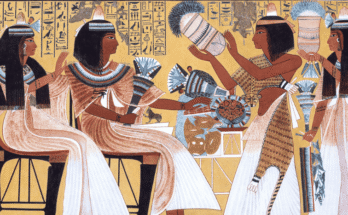Why creating money is for the few more than the many. Writes Frances Coppola.
Sovereignty has become a buzz-word. We are told that the principal reason for the UK’s decision to leave the EU was a desire for sovereignty. “Take back control,” was the slogan. Sovereignty, it seems, equates to control. But control of what?
In the case of Brexit, sovereignty appears to mean political control of trade, law and immigration. But in the decade since the fall of Lehman brothers, there has been quite a bit of debate about another sort of sovereignty, namely monetary sovereignty – the ability to create money without external restriction.
Since no-one these days pegs their currency to gold, all the world’s major central banks are monetarily sovereign. They can create their currencies in unlimited quantities and distribute them as they see fit. Since the fall of Lehman Brothers, central banks around the world have created enormous amounts of money. Thousands of (mainly negative) words have been written about quantitative easing (QE) and its effects. Some have focussed on the money creation itself: “OMG the Fed has printed $4.2 trillion dollars, there will be hyperinflation,” while others concentrate on its distribution: “QE bailed out the banks and the rich, while ordinary people lost their homes.”
Rather fewer words have been written on the money that was destroyed in the financial crisis – the private money created without the approval or even the knowledge of governments. But the two moneys are intrinsically connected. The money created by central banks, and by governments through deficit spending, replaced the private money that died when the banks failed.
“Since central banks operate independently of government, their money creation is not under democratic control.”
Replacing private money with central bank money might have warded off an economic depression, but it exposed the democratic deficit at the heart of money creation in the modern economy. Private money is primarily created by banks when they lend. It is not under democratic control. And since central banks operate independently of government, their money creation is not under democratic control either. The people of the UK did not vote for the Bank of England to spend £435 bn of newly-created money buying assets from investors. Had they been asked, they might have wanted the Bank of England to give that money to them instead.
So calls for restoration of monetary sovereignty stem directly from the failure of private money and its partial replacement by central bank money. They reflect deep popular dissatisfaction with the dominance of unaccountable “elites” in the private and the public sector.
Everyone hates the bankers, of course: after the crisis, there were loud calls for banks to be stripped of their power to create money. But now, the public servants who run central banks are also in the firing line. Central banks’ independence is under threat. The public is dissatisfied with central banks’ inability to bring back the good times and frustrated by politicians’ inability to hold central banks to account for their failures.
Those complaining about lack of monetary sovereignty agree that banks and central banks should not control money creation. But they fundamentally disagree about who should control the creation and circulation of money. On one side are those who believe that only government should control the creation and circulation of money, that central banks should be subsumed into government, and that all forms of private money are either irrelevant or should be outlawed. At the opposite extreme are those who believe that government should have no power to create money or direct its distribution, that central banks are an anathema, and that the money supply should be fixed and its distribution determined entirely by people’s trading activity. The monetarily sovereign government school is perhaps best exemplified by Modern Monetary Theory (MMT). And the anything-but-monetarily-sovereign-government school’s champion is Bitcoin.
This polarisation reflects a deep and bitter political division. Those who believe in monetarily sovereign governments view government as benign and always acting in the best interests of the people. Those who oppose monetarily sovereign government view government as malign, acting in self-interest at the expense of the population. Both sides recognise that modern government is flawed but advocates of monetarily sovereign government think they can perfect government, whereas their opponents want to abolish it.
“The public is dissatisfied with central banks’ inability to bring back the good times.”
The muddled reality is somewhere between these two extremes. Governments are made up of people and people are flawed. It is no more possible to perfect government than it is to perfect people. It suits MMT supporters to pretend that if they were in control, all forms of corruption and self-interest would disappear from politics. But this is hubris. When the creation and circulation of money is at the whim of politicians, things can – and will – go wrong. That doesn’t mean it will go wrong always and everywhere. Hyperinflation is (mercifully) rare, and it is not necessarily due to out-of-control money printing by corrupt politicians. More cases of hyperinflation stem from war or regime change than arise from misguided economic policies.
Far more common features of poor policymaking are short-termism due to the political cycle and the need to buy votes, and unfair distributional policies due to popular antipathy towards marginalised groups.
But private money creation also depends on the decisions of flawed people. That is as true of cryptocurrencies as it is of banks. The rate of Bitcoin currency creation is set in a piece of code written by an anonymous coder, a human being whom we know hated both bank and central bank money creation. And in a free market system with a fixed money supply, the distribution of money is inevitably unfair. Those who get in early hoover up most of the money and hang on to it. Scarcity for late arrivals pushes up the price of money, making early adopters very rich while the rest struggle to scrape together a few satoshis. Such unfairness can fuel political unrest, as it did in the glory days of the classical gold standard. It could even, eventually, lead to overthrow of the system.
While this criticism also applies to the existing private-money system, neither MMT nor Bitcoin offer any improvement. All they do is create different elites.
How money is created and circulated depends fundamentally on the beliefs of those who control it. They have monetary sovereignty. The rest of us, not so much. Replacing banks with governments, and governments with code, won’t eliminate the power asymmetries that destroy people’s control of their lives. Enabling people to have control of very little money doesn’t give them control of their lives. And nor does giving corrupt and unaccountable “representatives of the people” full control of the money supply.
Some argue that the solution is for money creation and distribution to be directly under democratic control. People should vote to decide who makes monetary decisions, and perhaps even what those decisions should be. But democracy is also flawed.
Democracies can be tyrannical towards marginalised groups. A direct democracy that had the power to determine the distribution of money would have the power of life and death over those groups. For this reason, I reject the argument that all money should be created by government.
There is a necessary social role for private money. It can offset the harshness that majorities too often show towards minorities, enabling people to live when they are denied the means to do so. And it can also enable majorities to live when money dies; private money proliferates in hyperinflation. Repressing private money is repressive.
“Neither MMT nor Bitcoin offer any improvement. All they do is create different elites.”
It is folly to imagine that completely replacing private with public money, or public with private money, will improve the lives of ordinary people. Our present monetary system, flawed as it is, works the way it does because thousands of years of trial and error have taught us that all the alternatives are worse. Those who would overthrow government are in reality seeking to establish the law of the jungle, in which only the strong and the lucky survive. Those who would suppress private money are, in reality, seeking to impose an authoritarian, repressive government under which personal freedom could be severely curtailed.
Of course, we have allowed elites in the private and public spheres too much power and demanded from them too little accountability. We need better checks and balances on money creation and distribution by both government and the private sector to prevent abuses of power.
We need our political elite to behave far more responsibly than it has in recent years, and our financial elite to be cut down to size, since it has become far too big for its boots. We need an equitable system of law, and access to it for everyone irrespective of means. We need governments that act in the interests of all their people, not just the rich.
These are the changes that would give people genuine monetary sovereignty.




